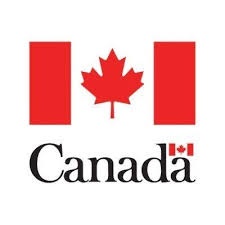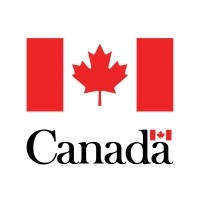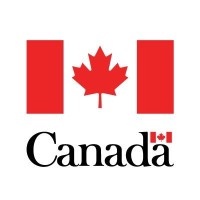
Open
Canada Public Transit Fund (CPTF)
Last Update: October 27, 2025
Canada
Supports long-term public transit and active transportation infrastructure projects
Grant and Funding
At a glance
Funding available
Financing goals
Reduce the ecological footprint
Develop strategic partnerships
Strengthening governance
See more
Eligible Funding
- Up to 40% of project cost
Timeline
- Unspecified
Eligible candidates
Eligible Industries
- Transportation and warehousing
- Public administration
Location
- Canada
Legal structures
- Non-profit
- Public or Parapublic institution
- For-profit business
Annual revenue
- All revenue ranges
Organisation size
- All organization sizes
Audience
- Indigenous Peoples
- Rural or Northern Residents
- Canadians
Non-profit candidates
Sector of operation
- Environment
- Economic, Social and Community Development
- Housing
Target groups
- General public
- Indigenous peoples
- Rural / Remote communities
- Nonprofits / charities
- Low-income individuals / families
Revenue structures
- All structures
Scope
- Municipal
- Regional
- Provincial
- National
Overview
The Canada Public Transit Fund provides up to $3 billion annually starting in 2026-27 to support capital and non-capital projects that enhance public transit and active transportation infrastructure across Canada. The program funds initiatives such as transit expansion, system rehabilitation, planning projects, and the development of active transportation networks.
Activities funded
- Expansion, rehabilitation, or replacement of existing public transit infrastructure, such as bus fleets, subway stations, or transit lines.
- Development, extension, or renewal of active transportation infrastructure, including bicycle lanes, walking trails, and pedestrian bridges.
- Planning projects related to the long-term improvement or expansion of public transit or active transportation systems.
Examples of admissible projects:
$ 48,000
Installing advanced composting equipment at a community urban farm
$ 30,000
Developing an accessible website and e-commerce platform for artisans
$ 42,000
Refitting a local bakery with energy-efficient ovens and lighting
$ 38,200
Equipping a community kitchen to process rescued food for shelters
$ 34,500
Launching a digital literacy program for seniors using tablets
$ 44,100
Piloting a shared electric cargo bike delivery service downtown
Eligibility
- The applicant must be a public transit agency or owner of public transit assets.
- The applicant must have at least three years (preferably five) of data on ridership history, population served, and capital investments.
- The applicant's public transit system must include fixed-route service.
- The applicant must have a historical annual average capital investment of at least $100,000.
- The transit system must serve at least 30,000 annual users.
Who is eligible?
- Municipal or regional administrations
- Public sector organizations established by provincial or territorial legislation or regulations, or owned wholly by provincial, territorial, municipal, or regional governments (e.g., transit agencies)
- Charitable or non-profit organizations incorporated under federal or provincial law
- Provincial or territorial governments
- Indigenous recipients, Indigenous development corporations, or Indigenous charitable organizations
- Private sector or for-profit organizations in partnership with eligible public sector or Indigenous recipients
Who is not eligible
- Applicants that do not meet the minimum eligibility requirements (e.g., lacking sufficient transit ridership data, not operating a fixed route transit service, or not meeting historical capital investment and ridership thresholds).
- Entities unable to provide supporting documentation for eligibility are considered ineligible.
- Applicants seeking to combine funding from most other Infrastructure Canada programs with the Base Funding stream (except for the Canada Community-Building Fund, CMHC, or Canada Infrastructure Bank).
Eligible expenses
- Capital investments for public transit infrastructure, such as extension, rehabilitation, or replacement of existing systems (e.g., bus fleet expansions, subway station upgrades, new tramway lines).
- Capital investments for active transportation infrastructure, including extension, rehabilitation, or replacement of bike paths, trails, and pedestrian bridges.
- Non-capital expenses related to planning activities for public transit or active transportation infrastructure projects.
Eligible geographic areas
- Communities across Canada, including provinces, territories, rural, remote, northern, and Indigenous communities
- Projects located in provinces and territories of Canada
Selection criteria
- Commitment to conduct a housing needs assessment and define minimum housing expectations for communities over 30,000 residents.
- Commitment to support Canada's plan to achieve net-zero emissions by 2050 and consider the project's potential climate impact.
- Provision of progress and results reports in accordance with funding agreements.
- Compliance with applicable codes, standards, environmental assessment requirements, federal laws and regulations, Indigenous consultation and accommodation obligations, and accessibility standards.
How to apply
1
Confirm applicant eligibility
- Review minimum eligibility criteria for applicants
- Ensure organization status is acceptable (municipal, public sector, non-profit, Indigenous, etc.)
- Verify existence of a fixed-route transit system with at least 30,000 annual users
- Confirm minimum capital investment history and data availability
2
Develop capital plan
- Prepare a long-term capital plan describing intended use of baseline funding
- Include details for public transit or active transportation infrastructure
- Incorporate planning, expansion, rehabilitation, or replacement projects
3
Assemble supporting documentation
- Gather required documentation supporting eligibility (data records, compliance proof)
- Consult with other responsible organizations if required (e.g., for housing needs assessment)
- Ensure project alignment with climate and accessibility requirements
4
Complete application submission
- Complete the application form for Baseline Funding
- Attach required documents and capital plan
- Review guidelines to ensure completeness
5
Submit application and wait for results
- Submit the completed application by the required deadline
- Await review and notification from program administrators
Additional information
- The Canada Public Transit Fund was shaped in part by a national engagement process involving provinces, territories, municipalities, Indigenous communities, transit agencies, and other stakeholders.
- Future intake periods for the Baseline Funding stream may open periodically to accommodate newly interested or eligible communities.
- Applicants must ensure that all projects comply with relevant environmental, accessibility, and Indigenous consultation and accommodation requirements.
- Recipients are required to report on progress and outcomes according to the stipulations in the funding agreements.
Apply to this program
Frequently Asked Questions about the Canada Public Transit Fund (CPTF) Program
Here are answers to the most common questions about the Canada Public Transit Fund (CPTF). This section explains what the program is, how much funding is available, eligibility requirements, application deadlines, and other important details to help you determine if this grant is right for your business.
What is the Canada Public Transit Fund (CPTF)?
How much funding can be received?
Who is eligible for the Canada Public Transit Fund (CPTF) program?
What expenses are eligible under Canada Public Transit Fund (CPTF)?
Who can I contact for more information about the Canada Public Transit Fund (CPTF)?
Where is the Canada Public Transit Fund (CPTF) available?
Is the Canada Public Transit Fund (CPTF) a grant, loan, or tax credit?
Apply to this program
More programs like this

Grant and FundingOpen
Incentives for medium and heavy-duty zero-emission vehicles (iMHZEV) Program
Transport Canada (TC)Incentives to purchase or lease medium- heavy-duty ZEVs

Grant and FundingClosed
Canada Public Transit Fund
Housing, Infrastructure and Communities CanadaSupports long-term public transit and active transportation infrastructure development

Grant and FundingOpen
Active Transportation Fund
Housing, Infrastructure and Communities CanadaSupports infrastructure projects for safer, more accessible active transportation

Partnering and CollaborationGrant and Fundingarchived
Equality for Sex, Sexual Orientation, Gender Identity and Expression Program
Women and Gender Equality Canada (WAGE)Supports equality initiatives for sex, sexual orientation, and gender identity

Grant and FundingClosed
Crime Prevention Action Fund (CPAF)
Public Safety Canada (PSC)Supports evidence-based crime prevention initiatives for at-risk communities

Grant and FundingClosed
Substance Use and Addictions Program (SUAP)
Health CanadaSupports innovative projects addressing substance use prevention and treatment

Grant and FundingClosed
Rail Safety Improvement Program (RSIP) - Research and Education Component
Transport Canada (TC)Funding for rail safety infrastructure, research, and education projects

Grant and FundingClosed
Enhanced Road Safety Transfer Payment Program (ERSTPP)
Transport Canada (TC)Funds projects to enhance road safety and reduce traffic injuries

Grant and FundingClosed
Age Well at Home (AWAH) - In-Home Support Pilot Project Stream
Employment and Social Development Canada (ESDC)Supports volunteer-based home services for vulnerable Canadian seniors

Grant and FundingClosed
Canada Nature Fund for Aquatic Species at Risk (CNFASAR)
Fisheries and Oceans Canada (DFO)Supports recovery and protection of aquatic species at risk
Sign up to our platform to access the Canada Public Transit Fund (CPTF) information sheet for free
Get access to 4,000+ programs, practical guides, personalized alerts, and an AI assistant to support your grant applications.